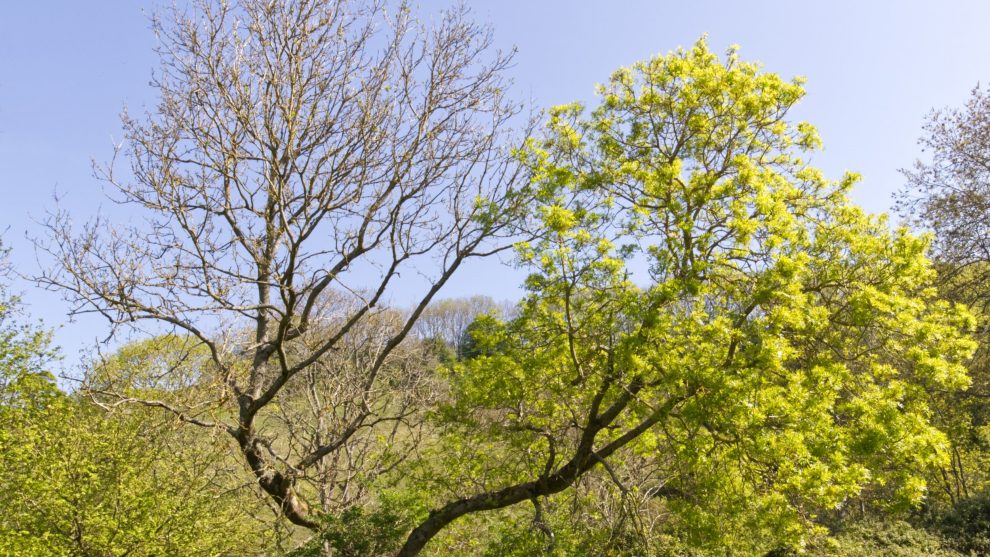Flintshire’s Tree Team are continuing to work hard to reduce the risk posed by dangerous ash trees which have been infected by Ash Dieback, a devastating fungal disease which will see the death of around 90% of all the ash trees in the UK.
Following this summer’s county-wide ash dieback surveys, Flintshire County Council’s tree team have identified ash trees of concern and disease hotspots and will be targeting action in the areas of highest risk.
As with previous years, this tree felling programme will progress to removing council owned roadside infected ash trees and infected ash trees growing within schools, public open spaces and countryside parks. As a responsible landowner Flintshire County Council has a duty of care which encompasses the removal of all severely infected ash trees on its property.
Councillor Dave Healey, Cabinet member for Climate change and Economy said: “Ash dieback is having a catastrophic effect on our ash tree populations and as the disease is expanding throughout the county, this effect is becoming more noticeable. It is sad to see so many ash trees being removed from our roads, schools, public open-spaces and country parks. I wish to thank the hard work of the tree team for their endeavours in tackling this issue.
There is nothing that can be done do to prevent the tree infection and subsequent tree loss. However, to mitigate these losses, Flintshire County Council will continue to plant new trees across the county, not only to replace the losses from Ash Dieback, but to establish new trees and woodlands to benefit biodiversity and contribute toward tackling the effects of climate change.
Landowners also have a responsibility to ensure the safety of trees on their land and if there is particular risk to the public from roadside trees, those adjoining other properties and those along public footpaths Flintshire is asking landowners to take action.

















